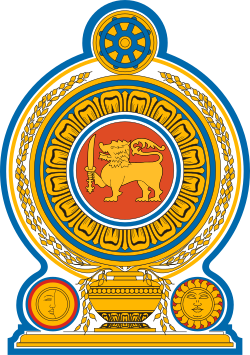 | |
| Ministry overview | |
|---|---|
| Formed | 2010 |
| Dissolved | 2015 |
| Jurisdiction | Democratic Socialist Republic of Sri Lanka |
| Employees | 145[ citation needed ] |
| Annual budget | LKR 1.09 billion[ citation needed ] |
| Child agencies |
|
The Ministry of Traditional Industries and Small Enterprise Development was a Sri Lankan government ministry responsible for oversight of policy guidance and facilitation for traditional local industry, SMEs and the handicraft industry, with a goal of helping improve these industries to compete on the international market. It thus targeted home-based enterprises and cited poverty reduction, rural development and inclusive growth and social development as secondary focuses. The ministry was part of the Rajapaksa cabinet.

